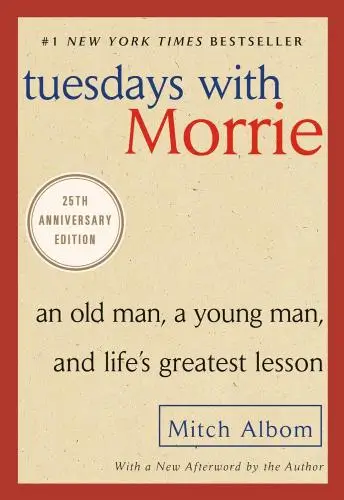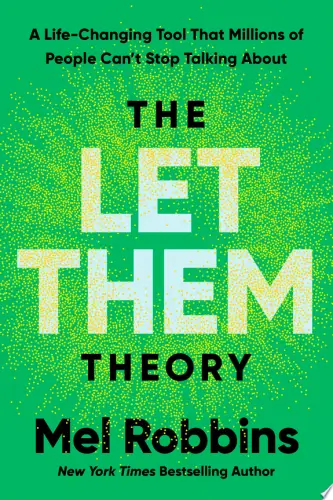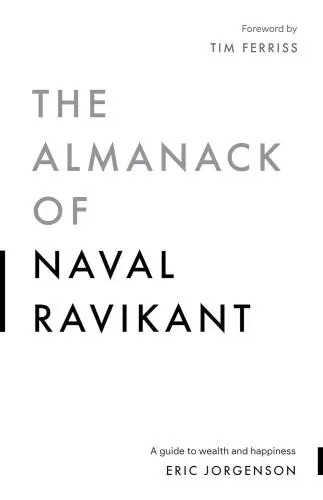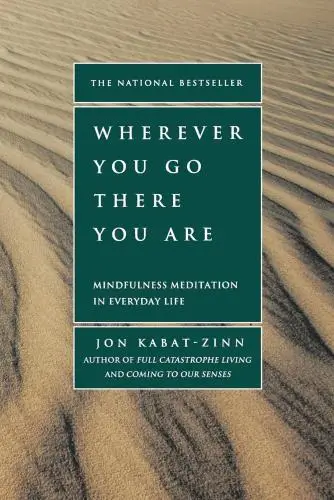
Tuesdays with Morrie
An Old Man, a Young Man, and Life's Greatest Lesson
What's it about?
Tuesdays with Morrie is a heartwarming memoir that follows Mitch Albom as he reconnects with his former professor, Morrie Schwartz, who is battling ALS. Through a series of Tuesday meetings, Morrie imparts his wisdom on life, love, and forgiveness to Mitch. This touching story reminds us of the importance of cherishing relationships and living with meaning. It teaches valuable life lessons and the beauty of human connection. A must-read for anyone seeking inspiration and guidance on navigating life's complexities.
About the Author
Mitch Albom is a bestselling author known for his heartfelt and inspirational storytelling. His works often explore themes of life, death, love, and redemption, with a focus on the power of human connection. One of his most famous books, "Tuesdays with Morrie," follows a young man's life-changing conversations with his dying mentor. Albom's writing style is simple yet profound, resonating with readers on a deep emotional level.
10 Key Ideas of Tuesdays with Morrie
Embrace Vulnerability
Allowing yourself to be vulnerable is a strength, not a weakness.
It opens the door to deeper connections with others and enables personal growth.
By embracing vulnerability, you acknowledge your true emotions and experiences, fostering authenticity and empathy in your relationships.
Learn DeeperAcknowledge Your Feelings: Start by recognizing and accepting your emotions. Whether you're feeling joy, sadness, fear, or anger, acknowledging these feelings is the first step towards vulnerability.
Share Your Story: Find someone you trust and share something personal with them. It could be a fear, a dream, or an experience that shaped you. This act of sharing can deepen your connection with others.
Ask for Help: Remember, it's okay to not have all the answers. Asking for help when you need it shows strength and allows others to connect with you on a deeper level.
Practice Active Listening: When engaging in conversations, focus fully on the other person. Active listening can encourage others to open up, creating a space for mutual vulnerability.
Embrace Imperfection: Let go of the idea of being perfect. Embrace your flaws and imperfections, and let others see them. This authenticity fosters genuine connections.
- Example
Imagine you're feeling overwhelmed at work but have been keeping it to yourself to avoid appearing weak. By choosing to be vulnerable, you decide to talk to a colleague or supervisor about your feelings, discovering that they too have faced similar challenges. This conversation could lead to support, advice, or even changes that make your work environment more manageable.
- Example
Consider a scenario where you've always wanted to pursue a particular hobby or interest but fear judgment from others. By opening up about this desire to a friend or family member, you not only get the opportunity to share a part of yourself but also might find encouragement or a shared interest that strengthens your bond.
Live with Purpose
Identify what truly matters to you and let it guide your decisions and actions.
Living with purpose means aligning your daily life with your values and goals, leading to a more fulfilling and meaningful existence.
It encourages you to focus on what's genuinely important, reducing time spent on distractions or pursuits that don't contribute to your overall well-being.
Learn DeeperReflect on Your Values: Spend some time thinking about what truly matters to you. This could be family, career success, helping others, or personal growth. Write these down and consider how your current lifestyle aligns with these values.
Set Purpose-Driven Goals: Based on your values, set specific, measurable goals that reflect what you want to achieve in life. These goals should guide your daily actions and decisions, helping you live more intentionally.
Prioritize Your Time: Evaluate how you spend your time daily. Identify activities that don't align with your values or goals and reduce the time spent on them. Instead, allocate more time to actions that bring you closer to your purpose.
Seek Out Meaningful Connections: Surround yourself with people who share similar values or inspire you to live according to your purpose. These connections can provide support, motivation, and guidance as you navigate your journey.
Practice Gratitude and Reflection: Regularly reflect on your progress towards living a purpose-driven life. Acknowledge the steps you've taken, no matter how small, and practice gratitude for the opportunities and challenges that have helped you grow.
- Example
If one of your core values is helping others, a practical step could be volunteering at a local charity or nonprofit organization regularly. This aligns your actions with your value of service to others, providing a sense of fulfillment and purpose.
- Example
For someone who values personal growth, setting a goal to read one book related to personal development each month is a tangible way to live according to that value. This habit not only aligns with the goal of growth but also provides continuous learning and self-improvement opportunities.
Accept Mortality
Acknowledging and accepting the inevitability of death can profoundly change how you live.
It serves as a reminder to appreciate the present and make the most out of every moment.
This acceptance encourages living authentically and making choices that reflect your true desires and values, rather than being driven by fear or societal expectations.
Learn DeeperReflect Daily: Spend a few minutes each day contemplating the finite nature of life. This can be done through meditation, journaling, or simply sitting quietly. Use this time to think about what truly matters to you and how you want to spend your time.
Express Gratitude: Make it a habit to express gratitude for the people and experiences in your life. This could be through telling someone you appreciate them, keeping a gratitude journal, or reflecting on positive moments at the end of each day.
Prioritize Relationships: Focus on nurturing meaningful relationships. Make time for family and friends, and be fully present during these interactions. Quality time is more valuable than quantity.
Live Authentically: Make choices that align with your true self and values. If something doesn’t feel right to you, have the courage to say no or to change direction. This includes career choices, hobbies, and how you spend your free time.
Embrace New Experiences: Step out of your comfort zone and try new things. Whether it’s traveling to a new place, learning a new skill, or meeting new people, these experiences can enrich your life and provide a deeper sense of fulfillment.
- Example
A person might start each day by listing three things they’re grateful for, helping them to focus on the positive aspects of their life and the present moment.
- Example
Another example could be someone deciding to take a class in something they’ve always been interested in but never pursued, like painting or a new language. This act of following their curiosity and passion is a way to live more authentically and make the most of their time.
Cultivate Compassion
Developing a deep sense of compassion for others enriches your life and fosters stronger connections.
Compassion involves understanding and empathizing with others' experiences and emotions, leading to more meaningful interactions and a supportive community.
It also promotes personal happiness by shifting focus from self-centered concerns to the well-being of others.
Learn DeeperPractice Active Listening: When engaging in conversations, focus entirely on the other person. Listen to understand, not to respond. This helps in truly comprehending their feelings and perspective, fostering a deeper connection.
Volunteer Your Time: Find local organizations or community groups where you can volunteer. Helping those in need directly cultivates compassion as you're actively contributing to the well-being of others.
Express Gratitude: Make it a habit to express gratitude towards people in your life. Acknowledging the good in others and showing appreciation can strengthen your relationships and encourage a more compassionate outlook.
Educate Yourself About Other Cultures and Lifestyles: Broadening your understanding of how diverse human experiences can be, helps in developing empathy. This can be through books, documentaries, or even engaging in conversations with people from different backgrounds.
Perform Random Acts of Kindness: Small, unexpected acts of kindness can have a big impact. Whether it's paying for someone's coffee in line behind you or leaving a positive note for a coworker, these actions spread positivity and compassion.
- Example
If a friend is going through a tough time, instead of offering unsolicited advice, you could say, 'I'm here to listen if you want to talk about it,' showing that you're there to support them without judgment.
- Example
Joining a local food bank's weekend volunteer program allows you to meet people from various walks of life, both those you are helping and fellow volunteers, broadening your perspective and nurturing a compassionate heart.
Engage in Continuous Learning
Adopt a mindset of lifelong learning to keep your mind active and your spirit engaged.
Continuous learning expands your perspectives, challenges your beliefs, and stimulates personal growth.
It can come from formal education, personal experiences, or interactions with others, contributing to a richer, more informed life.
Learn DeeperSet aside dedicated learning time each day: Even if it's just 30 minutes, use this time to read a book, watch an educational video, or practice a new skill. This habit ensures continuous growth and keeps your mind engaged.
Diversify your learning sources: Don't just stick to one medium or subject. Read books, listen to podcasts, attend workshops, and talk to people with different perspectives. This variety will broaden your understanding of the world.
Reflect on your learning: After acquiring new information, take a moment to reflect on what you've learned and how it applies to your life. This could be through journaling, discussing with a friend, or simply meditating on the new knowledge.
Apply what you learn: Knowledge is most valuable when applied. Look for opportunities to use your new skills or insights in your personal or professional life. This could mean starting a project, improving a process at work, or changing a habit.
Join a learning community: Whether it's an online forum, a book club, or a local workshop group, being part of a community of learners can motivate you and provide new insights and resources.
- Example
If you're interested in gardening, you could set aside 30 minutes each day to read about plant care, watch tutorials on landscaping, and then apply what you've learned by starting your own garden. Reflect on your progress and challenges by keeping a gardening journal.
- Example
For someone looking to improve their public speaking skills, they might listen to TED Talks, participate in a local Toastmasters club, and seek opportunities to speak in front of small groups, gradually increasing the size as they become more confident. Reflecting on each experience and seeking feedback would be key components of their learning process.
Deeper knowledge. Personal growth. Unlocked.
Unlock this book's key ideas and 15M+ more. Learn with quick, impactful summaries.
Read Full SummarySign up and read for free!
Tuesdays with Morrie Summary: Common Questions
Experience Personalized Book Summaries, Today!
Discover a new way to gain knowledge, and save time.
Sign up for our 7-day trial now.
No Credit Card Needed

Similar Books

This Is Your Brain on Joy
Earl Henslin
The Let Them Theory
Mel Robbins
Flight SQA016
Amanda Radley
The Almanack of Naval Ravikant
Eric Jorgenson
Wherever You Go, There You Are
Jon Kabat-Zinn
Think Like a Monk
Jay Shetty
The Art of Happiness
Dalai Lama
Man's Search for Meaning
Viktor E. Frankl
Comprehensive Casebook of Cognitive Therapy
Frank M. Dattilio
Learning Habits
Sarah NichollTrending Summaries

Peak
Anders Ericsson
Never Split the Difference
Chris Voss
Smart Brevity
Jim VandeHei
The Psychology of Money
Morgan Housel
The First 90 Days
Michael D. Watkins
Atomic Habits
James Clear
Thinking, Fast and Slow
Daniel Kahneman
The Body Keeps the Score
Bessel van der Kolk M.D.
The Power of Regret
Daniel H. Pink
The Compound Effect
Darren HardyNew Books

Forex Trading QuickStart Guide
Troy Noonan
Comprehensive Casebook of Cognitive Therapy
Frank M. Dattilio
The White Night of St. Petersburg
Michel (Prince of Greece)
Demystifying Climate Models
Andrew Gettelman
The Hobbit
J.R.R. Tolkien
The Decision Book
Mikael Krogerus
The Decision Book: 50 Models for Strategic Thinking
Mikael Krogerus
Fichte
Johann Gottlieb Fichte
Do No Harm
Henry Marsh
